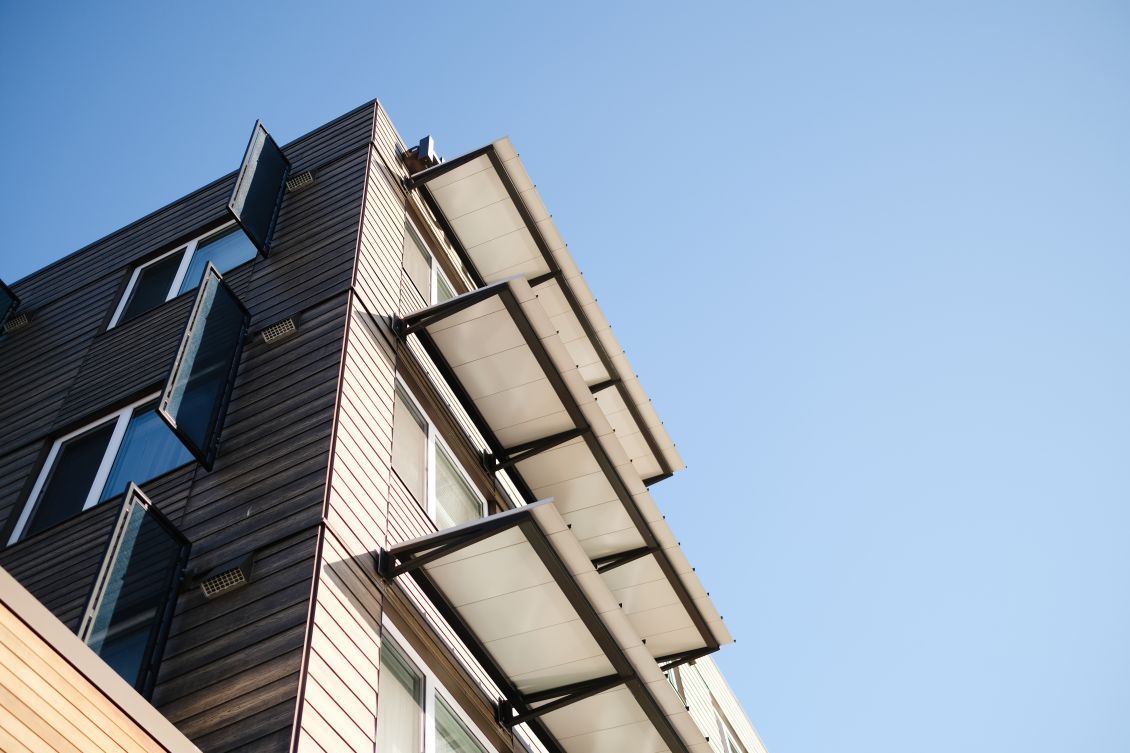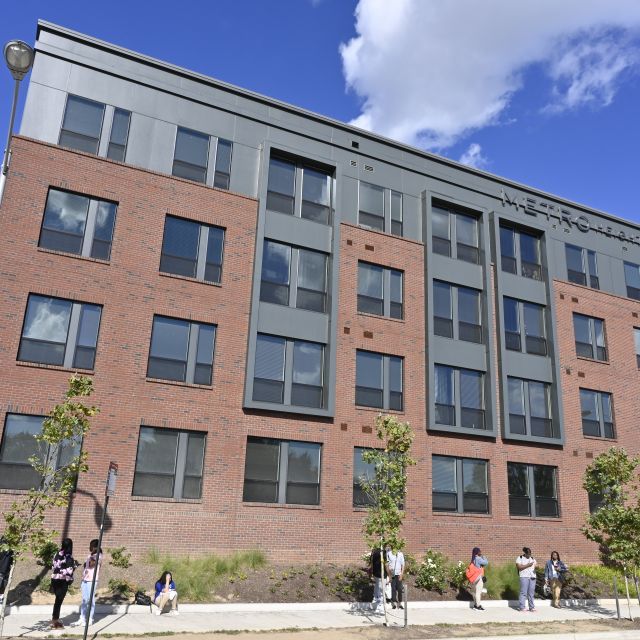There’s no getting around it: the built environment is responsible for nearly 40% of global emissions. It’s a daunting stat, but with it comes the opportunity for the affordable housing sector to drive solutions that lower the environmental impact while create meaningful benefits for residents and communities.
Green building standards provide an effective roadmap for reducing a building’s greenhouse gas emissions. Enterprise Community Loan Fund (ECLF), our community development financial institution (CDFI), leverages Enterprise Green Communities as a standard to help inform lending decisions involving green buildings.
Developed nearly 20 years ago, Green Communities is the first program of its kind developed with and for the affordable housing sector. Green Communities addresses key factors that can influence a building’s emissions, including site considerations, water and energy use, and operations and maintenance.
Building green is just one pillar of ECLF’s comprehensive response to climate change – our underwriting process also incorporates an analysis of climate risk reduction, and we are pursuing new lending products that will lead to equitable decarbonization.
These five partners demonstrate the breadth of climate solutions ECLF is supporting across the country:
- People’s Housing+: ELCF provided construction financing to People’s Housing+ for four single-family homes that will be sold to first-time homebuyers with lower incomes in the Treme and 7th Ward neighborhoods of New Orleans. Built to EnergyStar 3.0 standards, the homes incorporate hurricane resiliency components, implementing an important component of climate action: climate adaptation. Along with helping families build wealth, this project promotes climate justice by ensuring that people of all income levels can adequately withstand severe weather events and other impacts of climate change.
- East Bay Asian Local Development Corporation: ECLF provided capital to EBALDC for Lake Merritt BART Senior Housing, the new construction of a 97-unit senior affordable housing community in Oakland, California. The project is the first in a larger, multi-phase, transit-oriented development plan on Bay Area Rapid Transit-owned land in Oakland's Chinatown neighborhood, an area that has seen increasing displacement of longtime residents. The redevelopment of the Lake Merritt Station Area will bring 560 units of housing, 40% of which will be affordable, to an area of Oakland that has experienced disinvestment since the 1970s. The project will be built to the U.S. Green Building Council’s LEED Gold standard and is part of the Bay Area Transit Oriented Affordable Housing Fund.
- Enterprise Community Development: ECLF and DC Green Bank provided capital to Enterprise Community Development to install solar panels on the roofs of four affordable housing properties in Washington, D.C. The solar installations will result in the generation of over 2,500 megawatt hours of solar energy annually and supply a renewable, low-cost energy source to the properties. Residents who subscribe as part of Enterprise’s community solar program will also receive a 25% discount on their monthly electricity costs. The financial savings generated by lower electricity costs to the property will be reinvested in the form of additional resident programming and amenities.
- Project Vision Hawai’i: ECLF provided financing to Project Vision Hawai’i for two temporary homeless shelters with supportive medical services on the islands of Maui and Oahu. One of the shelters, Puʻuhonua O Nēnē, is a temporary shelter initially created for Maui wildfire survivors who were homeless before the disaster and are ineligible for federal aid. Since opening, the shelter has expanded to serve over 400 unhoused neighbors across Maui. This safe space offers essential services, including housing, medical assistance, meals, and more. The second shelter, Ka Malu Ko’olau Kauhale, is a housing program for houseless individuals across Oahu. The tiny home village offers case management and holistic supportive services that foster healing and recovery in a community setting, empowering residents to rebuild their lives together.
- DREAM Charter School: ECLF provided financing for the construction of a school facility for DREAM Charter School Highbridge. Upon completion, the school will provide quality education, tutoring, sports, and enrichment programs for a diverse population of nearly 800 K-8 students. The project design also incorporates sustainable measures like energy efficient appliances, a variable refrigerant flow heating/cooling system, and more. As a condition of financing from ECLF through a loan from New York Green Bank’s Community Decarbonization Fund, the project will report on estimated energy savings.
Learn more about Green Communities certification, visit our Affordable Housing Decarbonization Hub, and explore our climate risk reduction resources.

